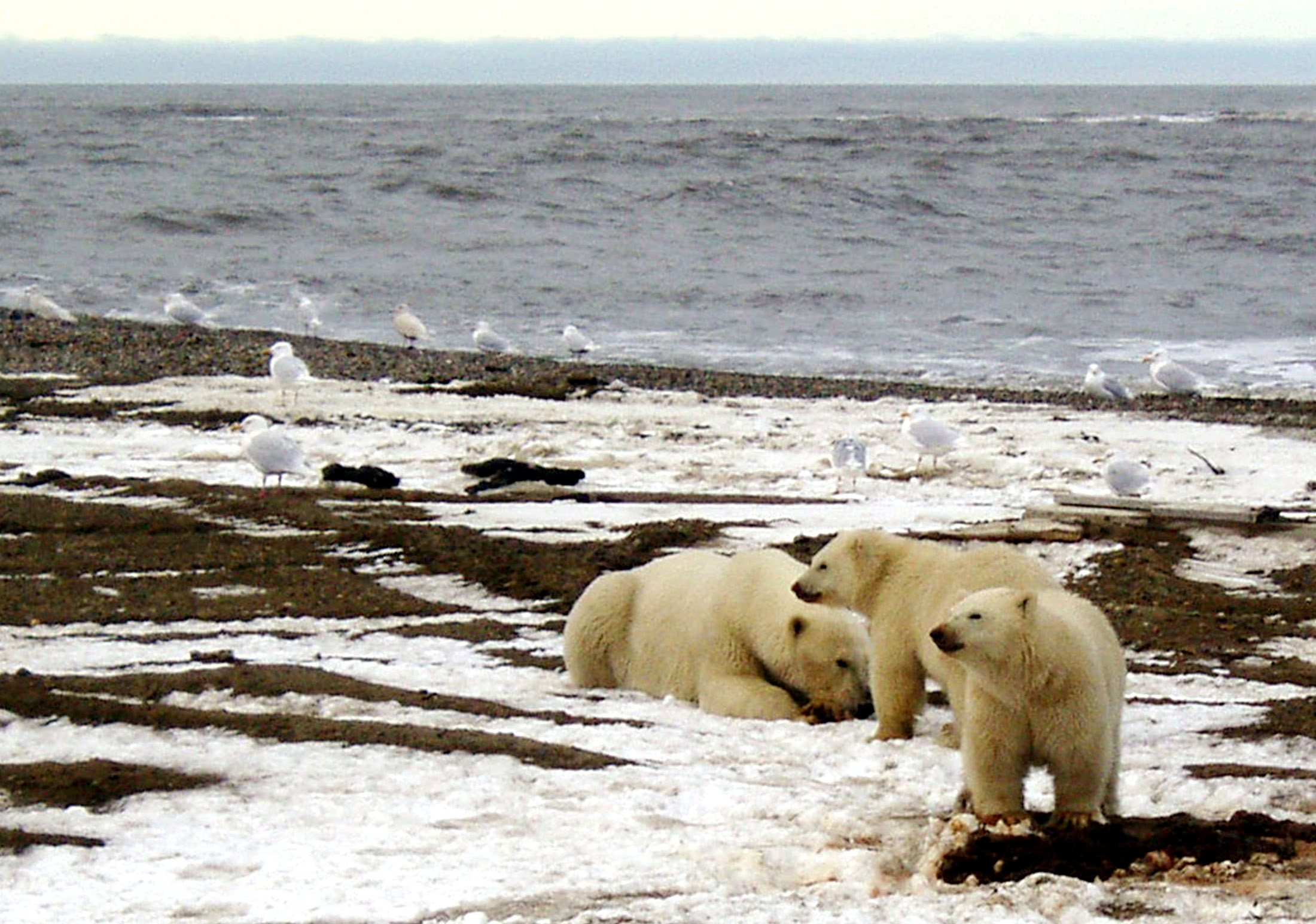An environmental group plans to sue over the impact to polar bears from a new Alaska oil project
The Peregrine prospect being developed by Australia’s 88 Energy threatens the endangered bears, the Center for Biological Diversity says.

An environmental group is seeking to stop exploration work at an oil project on Alaska’s North Slope that its developer touts as holding 1.6 billion barrels of reserves.
The Center for Biological Diversity on Dec. 22 filed a notice of intent to sue over the Biden administration’s alleged failures to protect polar bears at the Peregrine prospect being developed by Australia’s 88 Energy.
The Bureau of Land Management, the agency overseeing Peregrine activities, should not allow future work at the prospect until there is formal consultation under the Endangered Species Act to analyze impacts to polar bears, the group said: “Failure to do so would constitute a gross dereliction of the agency’s legal obligations and deprive polar bears of vitally important protections.”
Polar bears, listed as threatened, are imperiled by loss of sea ice and other effects of rapid climate change in the Arctic. New exploration at Peregrine would exacerbate those problems, said the group’s filing. “Ongoing and new oil and gas activities not only cause more of the greenhouse gas emissions already harming polar bears, but threaten the bears through, inter alia, oil spills, noise pollution, and physical obstructions,” the center wrote.
The BLM declined to comment on the Center for Biological Diversity’s planned lawsuit.
Under the Endangered Species Act, a 60-day notice of intent is required before lawsuits may be filed.
Peregrine is located along the west bank of the Colville River in the National Petroleum Reserve in Alaska. It is about 40 miles south of a better-known and more-explored prospect, ConocoPhillips’ Willow project — itself the subject of litigation that has stalled on-site work.
Australia-based 88 Energy, through its subsidiary Emerald House, drilled one well at Peregrine last winter called Merlin-1 and has plans to drill a second well there this winter, called Merlin-2. The Merlin-2 well is targeting 652 million barrels of oil, 88 Energy said in a recent investor presentation.
The BLM gave its approval to Merlin-2 drilling program on Dec. 21, the day before the Center for Biological Diversity released its notice of intent to sue.
The winter program planned by Emerald House, according to the BLM record of decision, includes the construction of about 90 miles of seasonal snow road, construction of six ice pads and the operation of two temporary camps, each to house 60 workers.
Like Willow, Peregrine lies along the Nanushuk formation, a geologic feature long recognized on the North Slope but considered, until recent advancements in technology, too tightly trapped in rock to be economically developed. The Nanushuk and related Torok formations hold an estimated 8.7 billion barrels of oil, according to a 2017 resource assessment by the U.S. Geological Survey.
Work at Willow has been halted by a court ruling that found the Trump administration’s pre-approval environmental reviews to be deficient. Among the problems with the Trump administration approvals, U.S. District Court Judge Sharon Gleason said in her August ruling, was the U.S. Fish and Wildlife Service’s failure to specify the polar bear protections that would be in place at the project.
Although 88 Energy is not yet a North Slope oil producer, it has several exploration projects underway in frontier areas of the North Slope. An 88 Energy subsidiary, Regenerate Alaska, was awarded one Arctic National Wildlife Refuge tract through the lease sale held by the outgoing Trump administration a year ago.